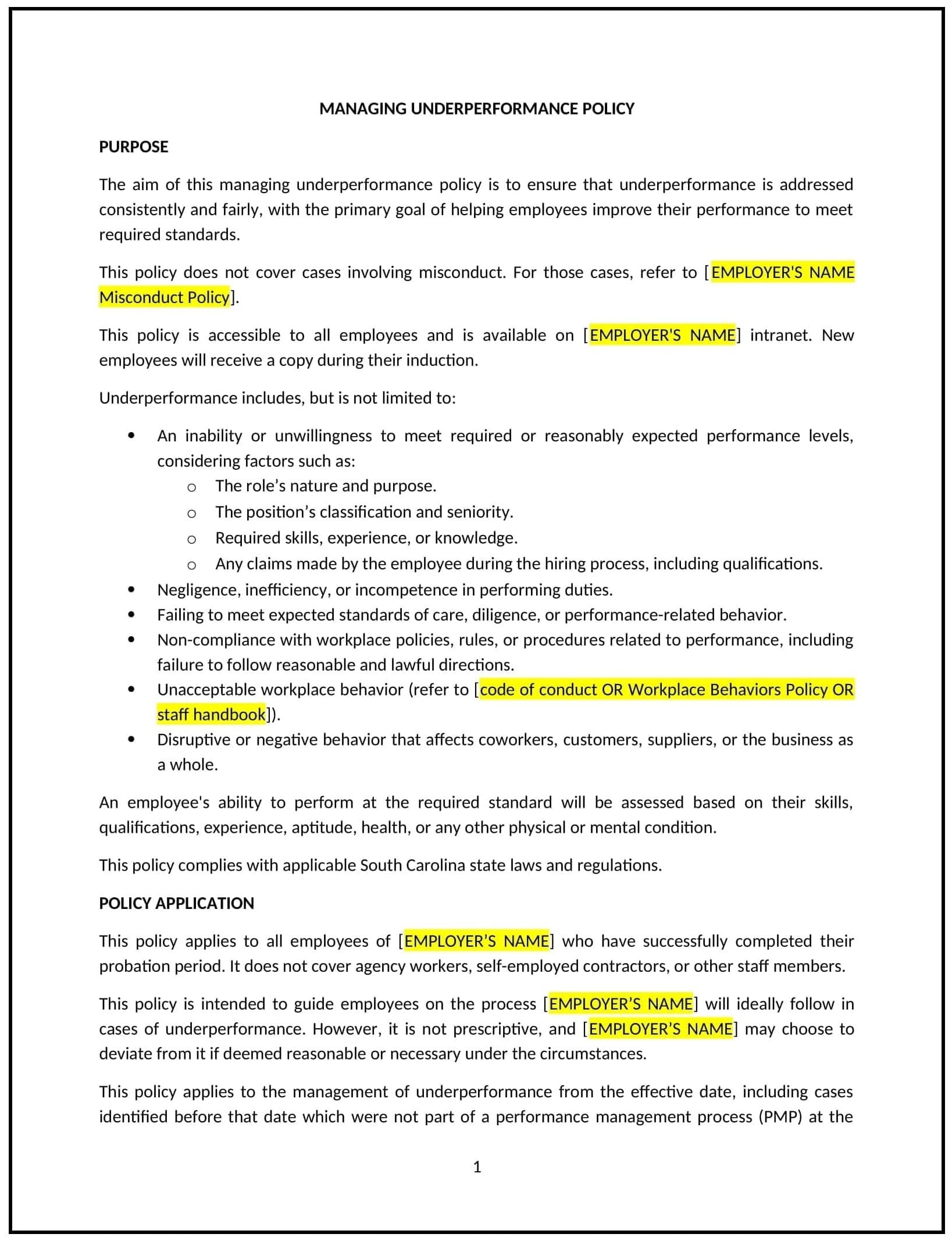Managing underperformance policy (South Carolina): Free template
Got contracts to review? While you're here for policies, let Cobrief make contract review effortless—start your free review now.

Customize this template for free
Managing underperformance policy (South Carolina)
This managing underperformance policy is designed to help South Carolina businesses establish guidelines for addressing employee performance issues in a fair and constructive manner. It outlines procedures for identifying underperformance, providing feedback, and implementing improvement plans to support employees in meeting job expectations.
By adopting this policy, businesses can improve productivity, maintain workplace standards, and foster a culture of accountability and growth.
How to use this managing underperformance policy (South Carolina)
- Define underperformance: Explain what constitutes underperformance, such as failing to meet job expectations, missing deadlines, or producing substandard work.
- Establish identification procedures: Provide steps for managers to identify and document performance issues, including regular performance reviews and feedback sessions.
- Set improvement plans: Outline how improvement plans will be created, including specific goals, timelines, and support resources.
- Address communication: Emphasize the importance of clear, constructive, and timely feedback to help employees understand expectations and areas for improvement.
- Train managers: Educate supervisors on handling underperformance issues professionally and empathetically.
- Review and update: Assess the policy annually to ensure it aligns with evolving business needs and performance standards.
Benefits of using this managing underperformance policy (South Carolina)
This policy offers several advantages for South Carolina businesses:
- Improves productivity: Helps employees meet job expectations and contribute effectively to the business.
- Maintains workplace standards: Ensures consistent performance across the organization.
- Supports employee growth: Provides employees with the tools and feedback needed to improve their performance.
- Aligns with best practices: Offers a structured approach to managing underperformance fairly and constructively.
- Reduces turnover: Encourages employees to improve rather than leaving the organization due to unresolved performance issues.
Tips for using this managing underperformance policy (South Carolina)
- Communicate the policy: Share the policy with employees and include it in the employee handbook.
- Provide training: Educate managers on handling underperformance issues professionally and empathetically.
- Monitor adherence: Regularly review performance management practices to ensure compliance with the policy.
- Address issues promptly: Take corrective action if underperformance is not addressed in a timely or constructive manner.
- Update regularly: Assess the policy annually to ensure it aligns with evolving business needs and performance standards.